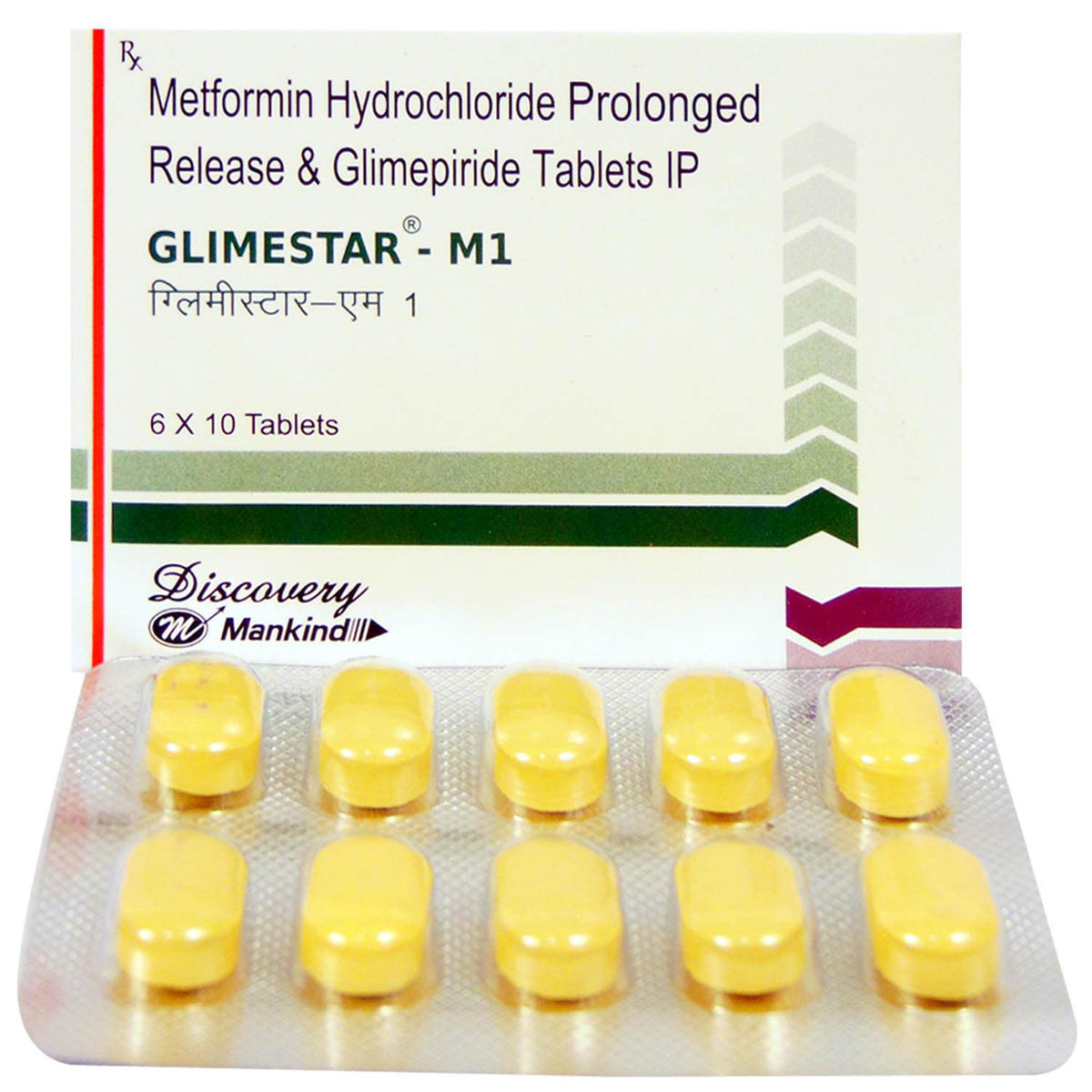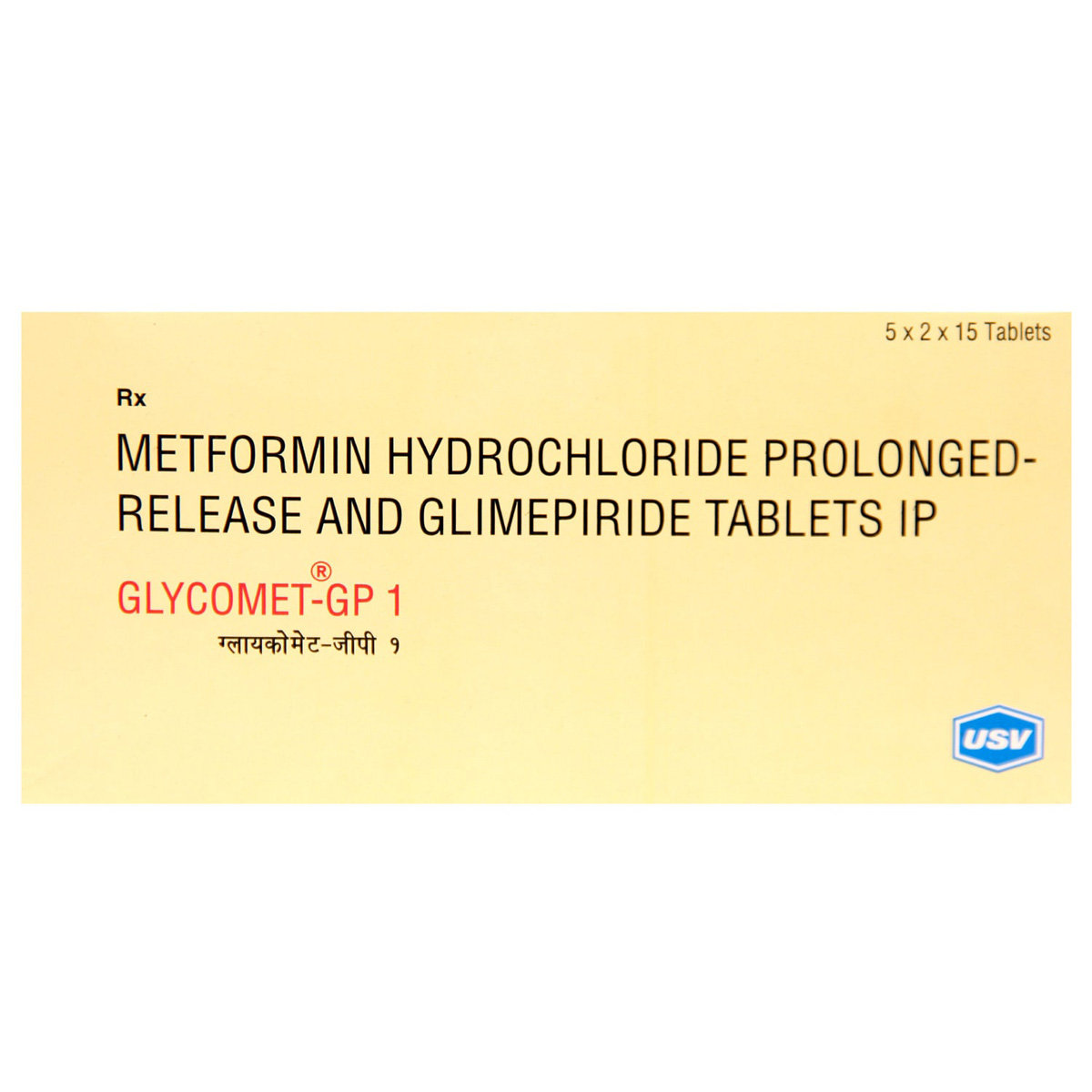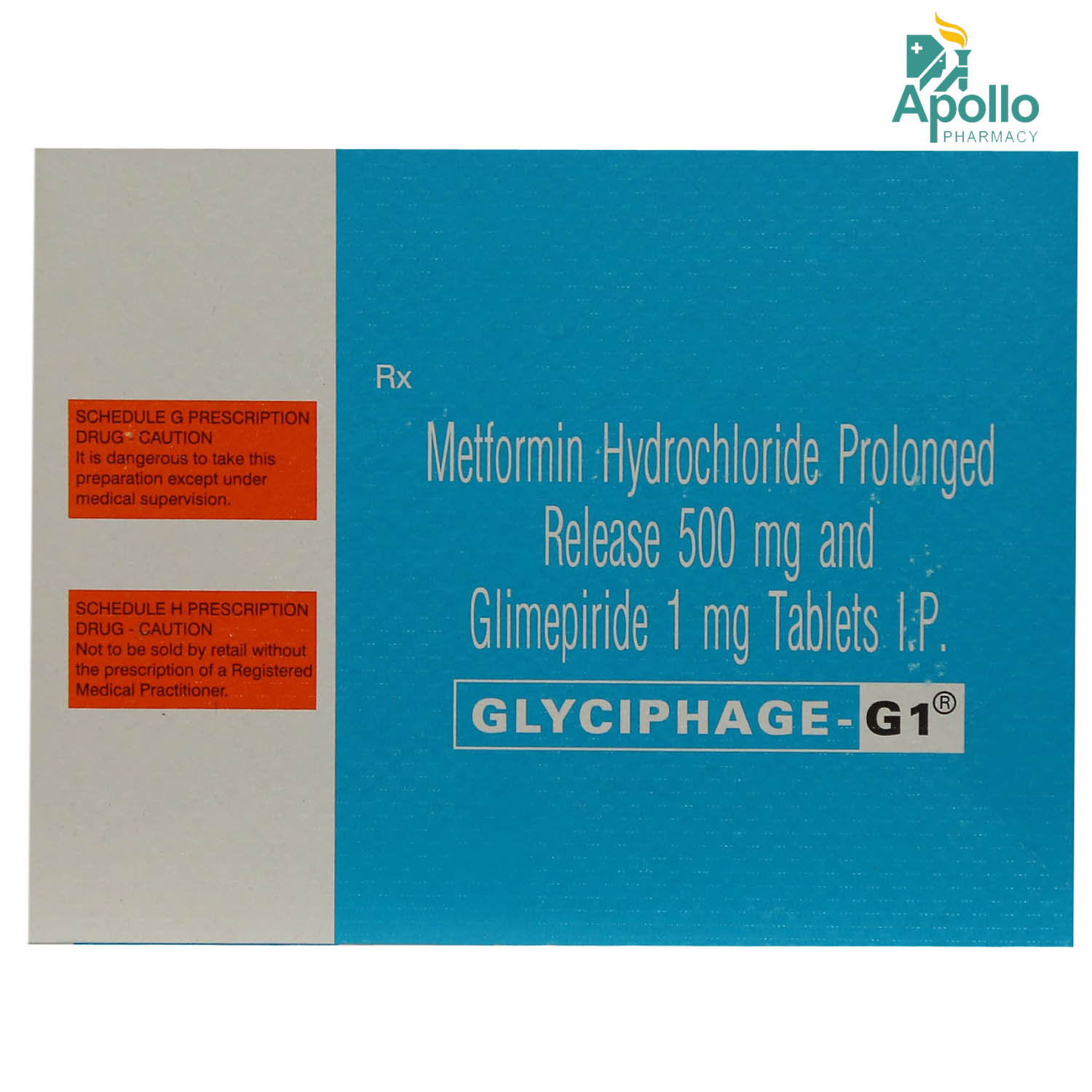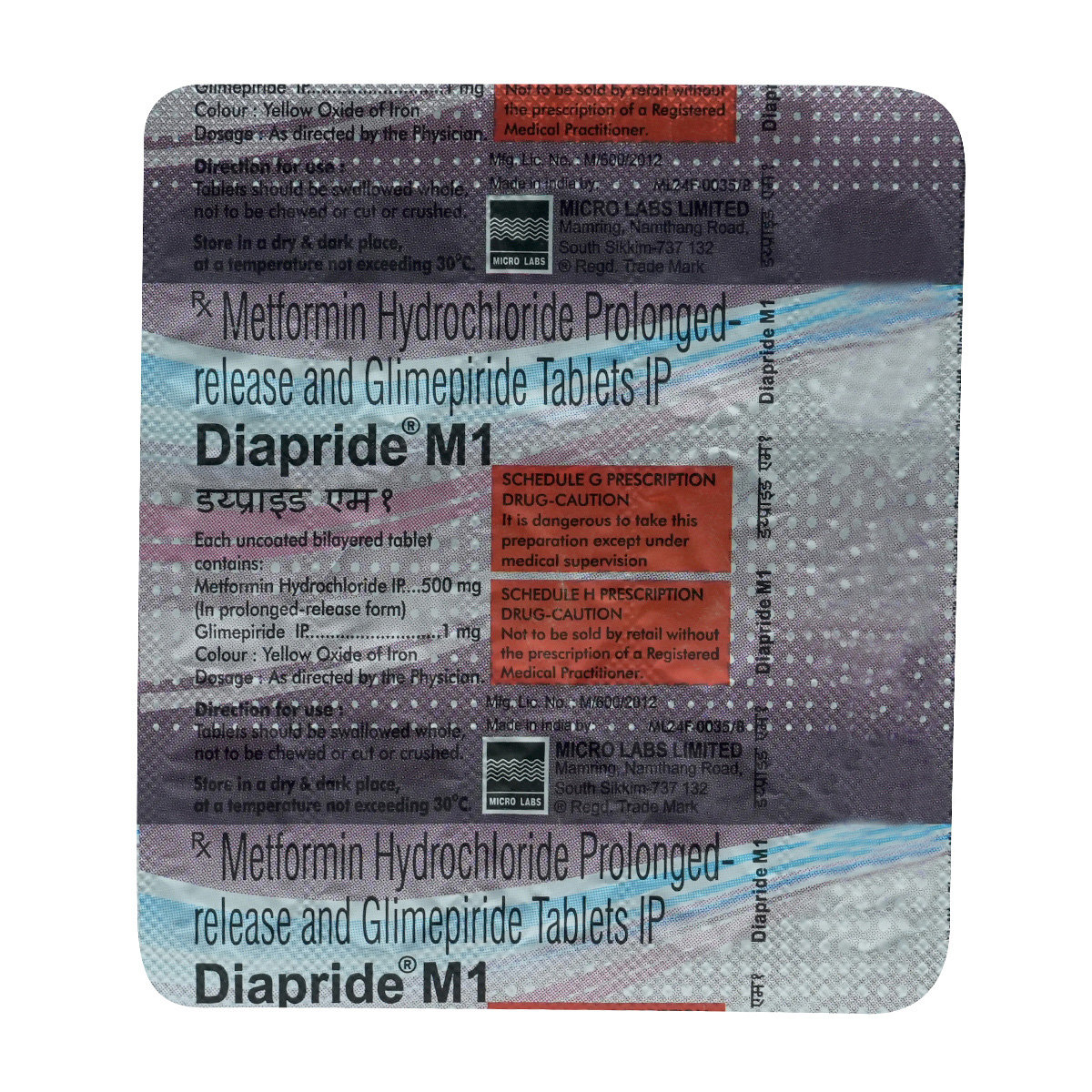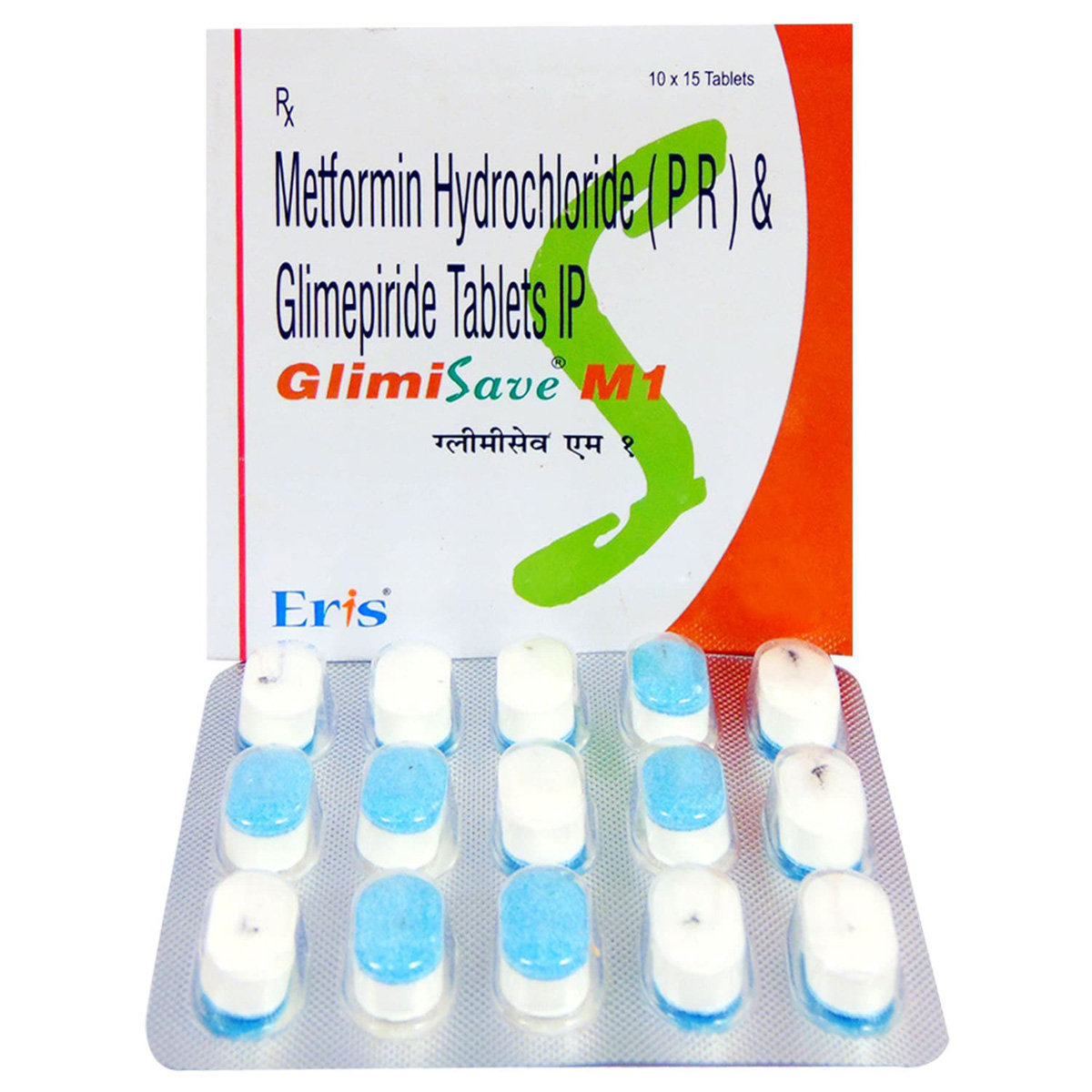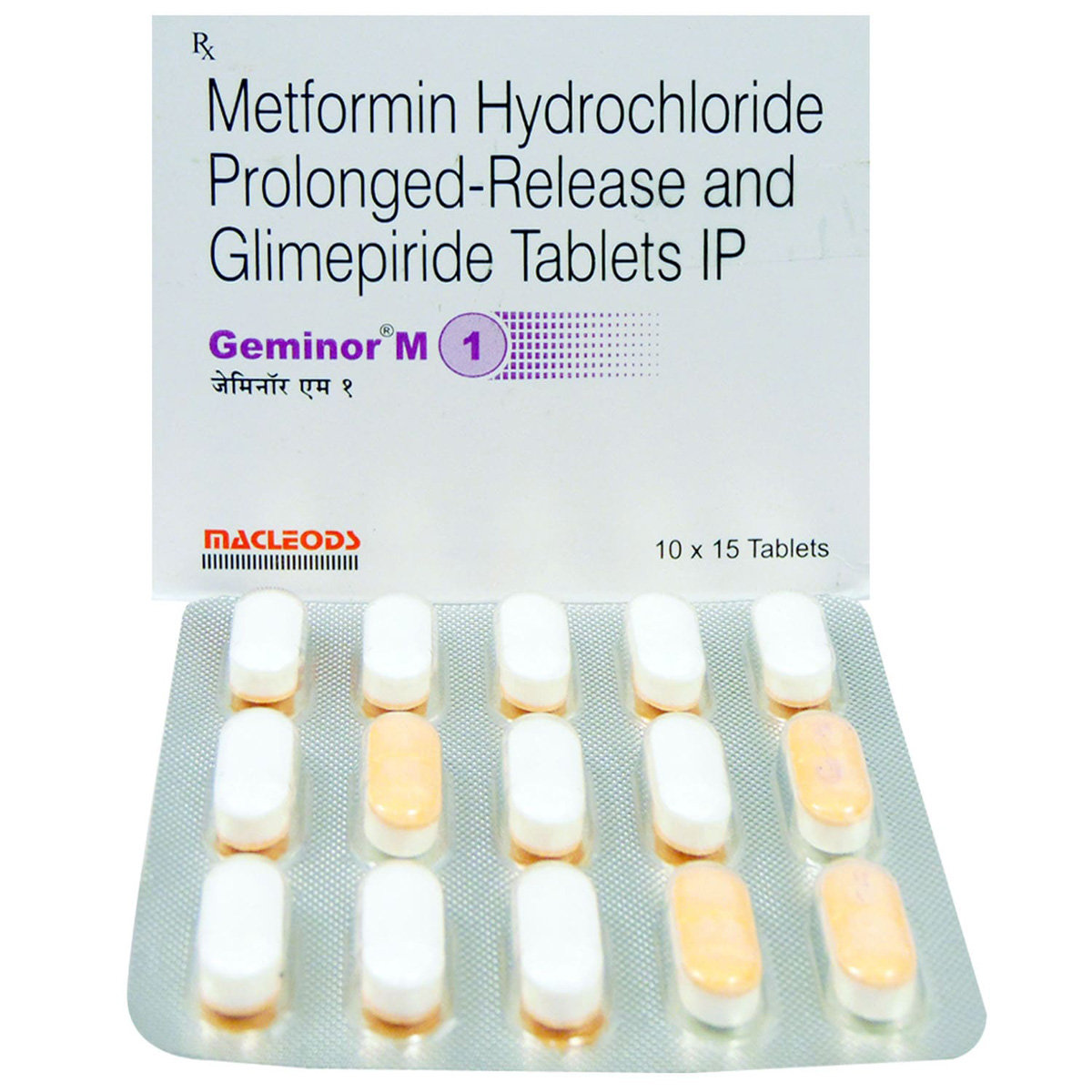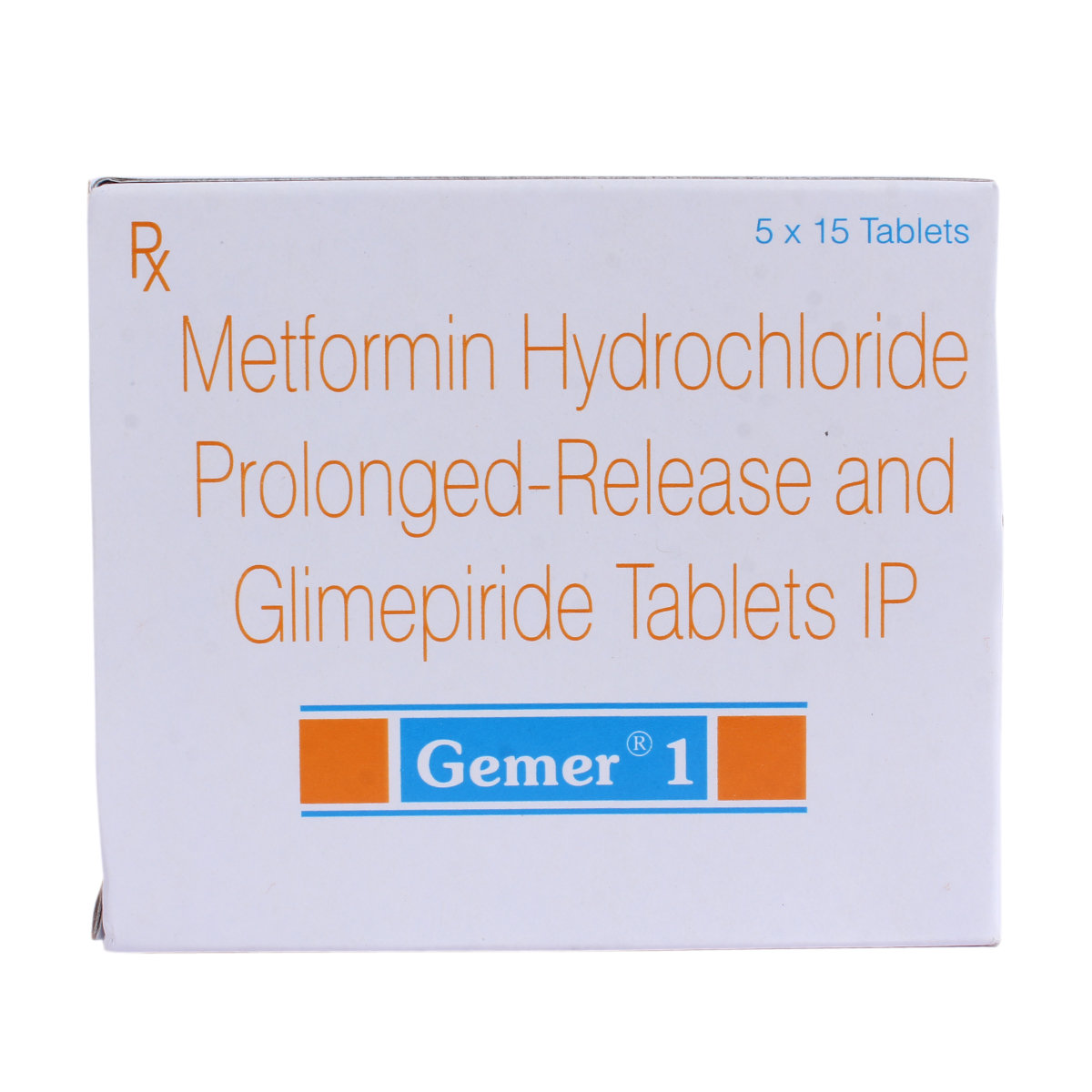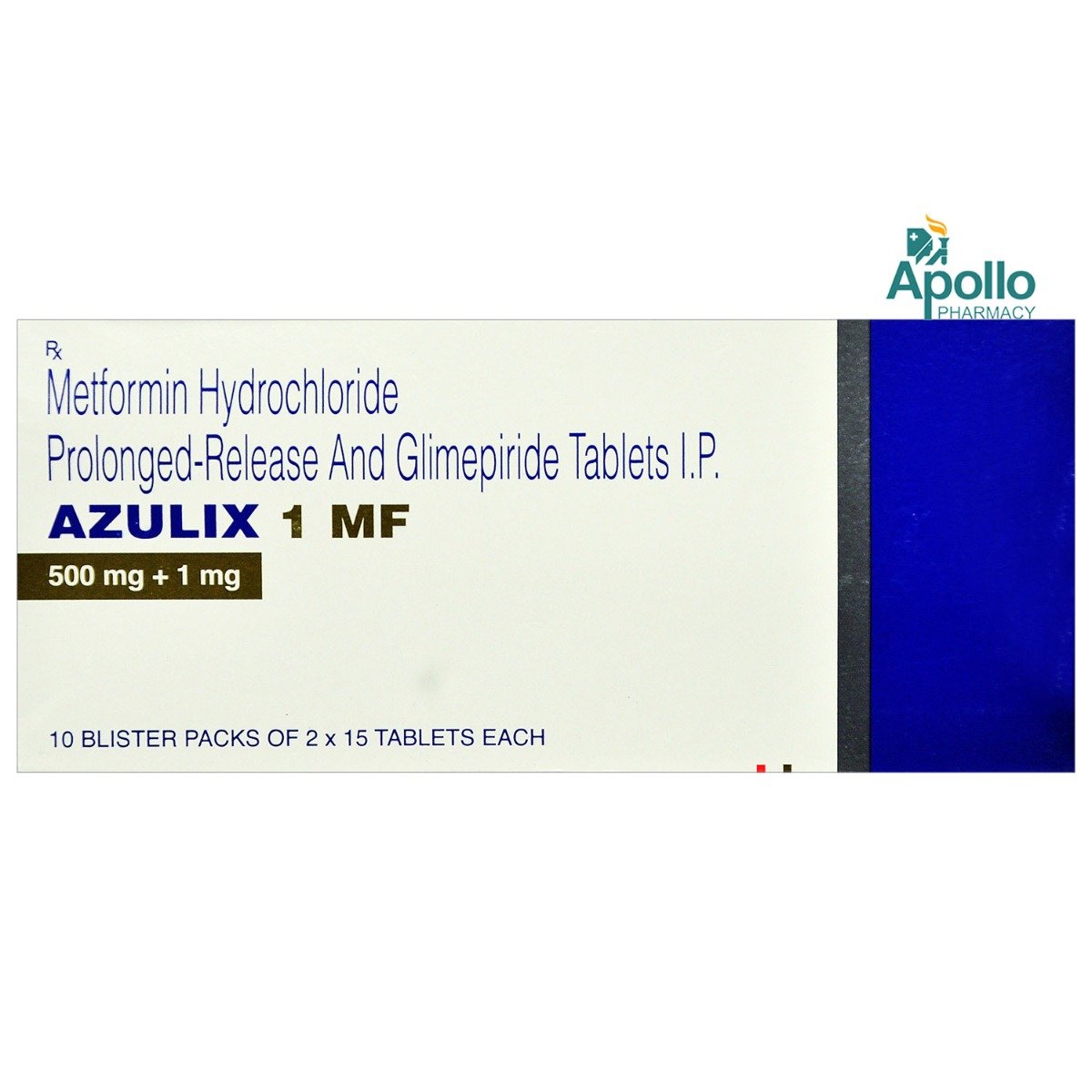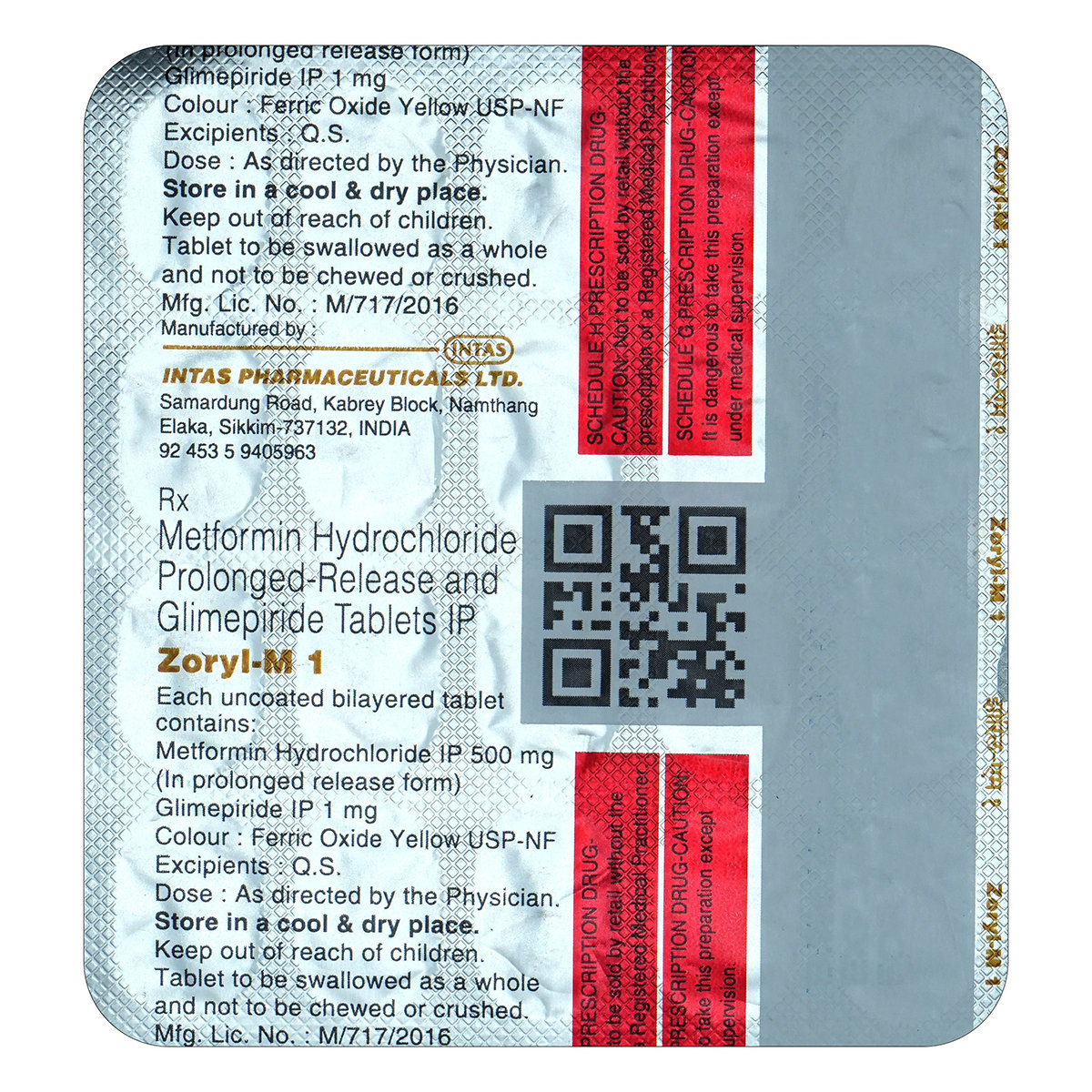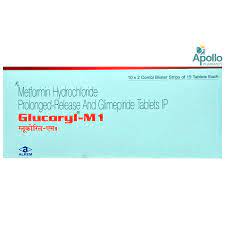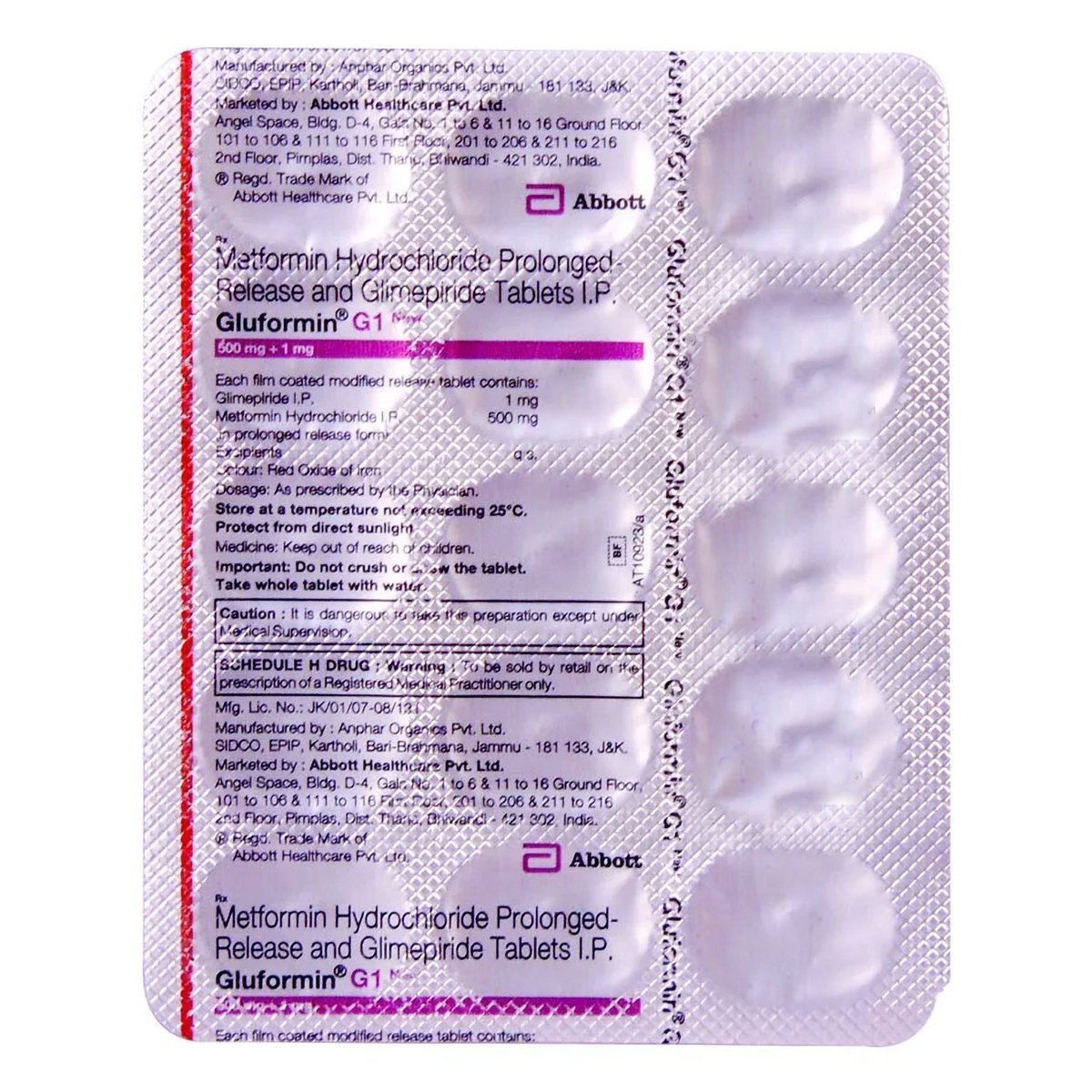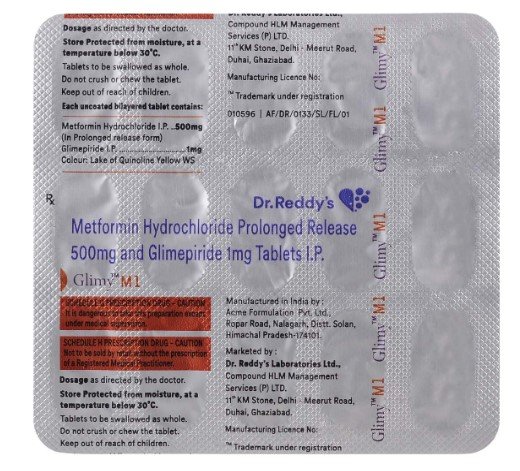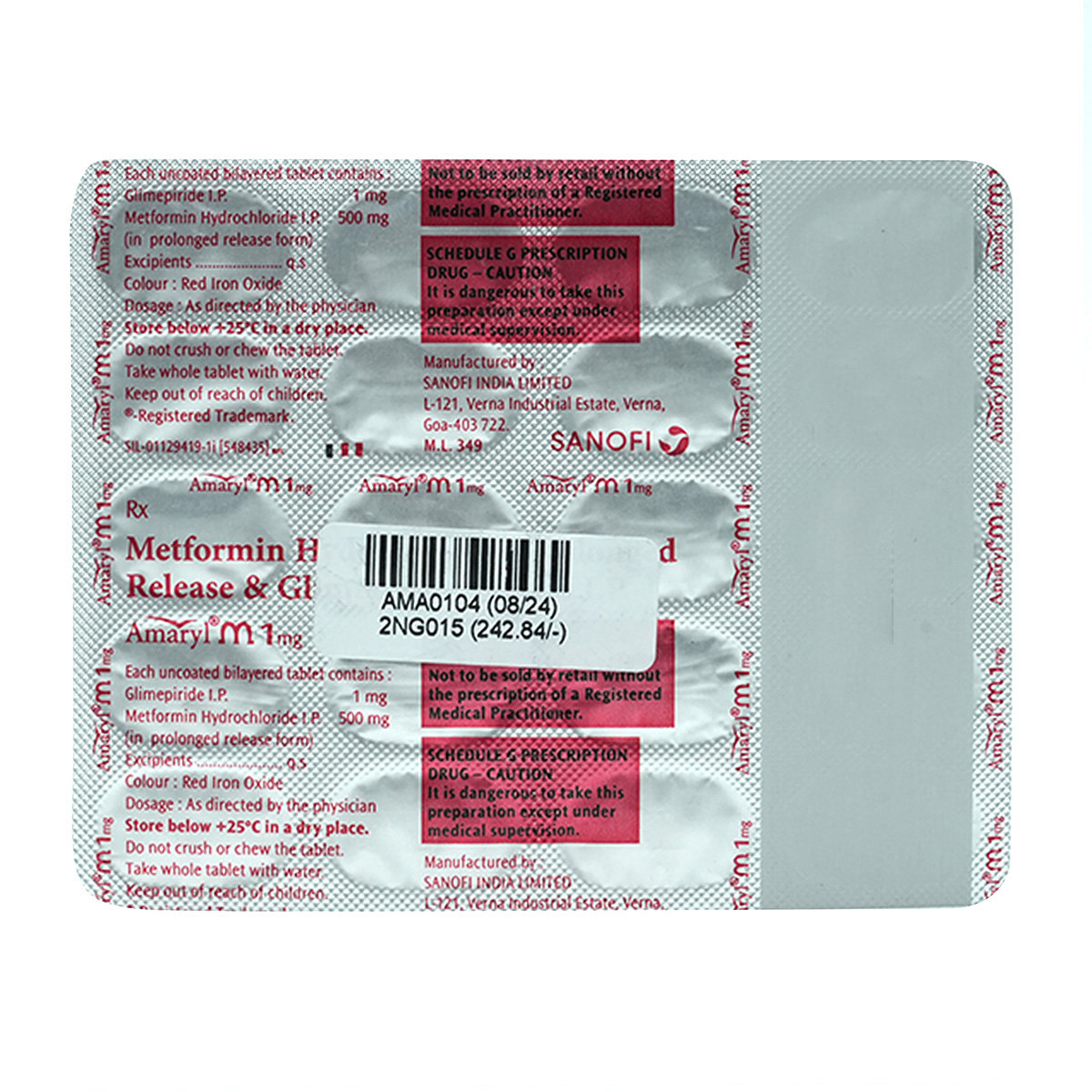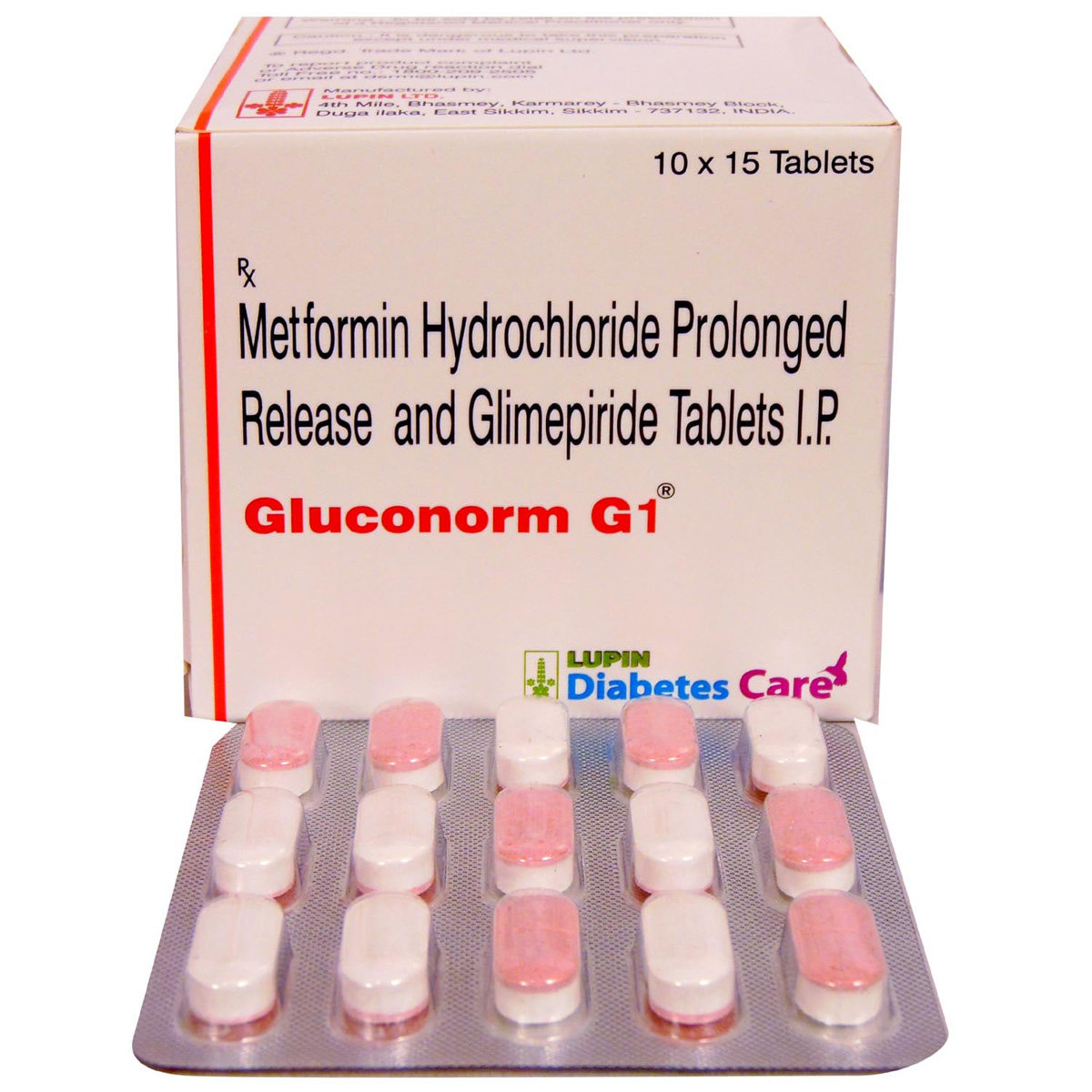Olglimide M 1 mg Tablet 10's
MRP ₹58.5
(Inclusive of all Taxes)
₹8.8 Cashback (15%)
Selected Pack Size:10
10 ₹52.65
(₹5.27 per unit)
In Stock
15 ₹95.9
(₹6.39 per unit)
In Stock
Provide Delivery Location
Online payment accepted
 Prescription drug
Prescription drugWhats That
Composition :
Manufacturer/Marketer :
Consume Type :
Expires on or after :
Return Policy :
About Olglimide M 1mg Tablet
Olglimide M 1mg Tablet belongs to a class of medicines called anti-diabetic drugs used in the treatment of type 2 diabetes, especially in patients whose blood sugar levels are not controlled by diet and exercise alone. Type 2 diabetes is a chronic (long-lasting) condition that affects the way our body processes glucose. People with type 2 diabetes either do not produce enough insulin, or the insulin produced is unable to perform its function in the body (insulin resistance).
Olglimide M 1mg Tablet is a combination of two antidiabetic drugs, namely: Glimepiride and Metformin. Glimepiride works by stimulating beta cells in the pancreas that produce insulin. Thus, insulin helps to remove sugar from the blood. Metformin PR is a prolonged-release formulation that releases the drug in smaller portions over a longer duration of time. Metformin works by reducing the sugar production by cells in the liver and delays sugar absorption from the intestines. Also, it increases the sensitivity of muscle cells to insulin which enables these cells to remove sugar more effectively from the blood.
Take Olglimide M 1mg Tablet as prescribed by your doctor. You are advised to take Olglimide M 1mg Tablet for as long as your doctor has prescribed it for you based on your medical condition. In some cases, you may experience stomach pain, nausea, diarrhoea, vomiting, headache or metallic taste. Most of these side effects of Olglimide M 1mg Tablet do not require medical attention and gradually resolve over time. However, if the side effects persist or worsen, please consult your doctor.
If you are allergic to Olglimide M 1mg Tablet or any other medicines, please tell your doctor. Olglimide M 1mg Tablet is not recommended for children. Avoid breastfeeding while taking Olglimide M 1mg Tablet as it may be excreted in human milk. If you are pregnant or planning for pregnancy, please inform your doctor before taking Olglimide M 1mg Tablet as it may harm the unborn baby. Avoid alcohol consumption with Olglimide M 1mg Tablet as it may increase the risk of lactic acidosis (accumulation of lactic acid in the body). Drive only if you are alert after taking Olglimide M 1mg Tablet . Take short, frequent meals and avoid prolonged fasting while taking Olglimide M 1mg Tablet .
Uses of Olglimide M 1mg Tablet
Directions for Use
Key Benefits
Olglimide M 1mg Tablet contains Glimepiride and Metformin used in the treatment of type 2 diabetes. Glimepiride stimulates cells in the pancreas that produce insulin which helps to remove sugar from the blood. Metformin PR is a prolonged-release formulation that releases the drug in smaller portions over a longer duration of time. Metformin reduces sugar production by cells in the liver and delays sugar absorption from the intestines. Also, it increases the sensitivity of muscle cells to insulin which enables these cells to remove sugar more effectively from the blood.
Storage
Drug Warnings
If you are allergic to Olglimide M 1mg Tablet or any other medicines, please tell your doctor. Olglimide M 1mg Tablet is not recommended for children. Avoid breastfeeding while taking Olglimide M 1mg Tablet as it may be excreted in human milk. If you are pregnant or planning for pregnancy, please inform your doctor before taking Olglimide M 1mg Tablet as it may harm the unborn baby. Avoid alcohol consumption with Olglimide M 1mg Tablet as it may increase the risk of lactic acidosis (accumulation of lactic acid in the body). Drive only if you are alert after taking Olglimide M 1mg Tablet . Take short, frequent meals and avoid prolonged fasting while taking Olglimide M 1mg Tablet . Beware of symptoms of hypoglycemia (low blood sugar) which include sweating, dizziness, palpitations, shivering, intense thirst, dry mouth, dry skin, frequent urination, etc. Whenever you experience any of these symptoms, immediately consume 5-6 candies or 3 glucose biscuits, or 3 teaspoons of honey/sugar, and also consult your doctor. Make sure to carry these with you at all times, especially during long travels.
Diet & Lifestyle Advise
- Do regular exercise such as cycling, walking, jogging, dancing, or swimming for a minimum of 30 minutes per day. Invest at least 150 minutes of your week in exercise.
- Maintain healthy body weight as obesity is also related to the onset of diabetes.
- Maintain a low-fat and low-sugar diet. Replace carbohydrates-containing foods with whole grains, fruits, and vegetables as carbohydrates turn to sugars leading to high blood sugar.
- Avoid consumption of alcohol and quit smoking.
Side Effects of Olglimide M 1mg Tablet
- Stomach pain
- Nausea
- Diarrhoea
- Vomiting
- Headache
- Metallic taste
Habit Forming
Therapeutic Class
All Substitutes & Brand Comparisons
RX
Glimestar-M1 Tablet 10's
Mankind Pharma Pvt Ltd
₹74.5
(₹6.71 per unit)
27% COSTLIERRX
Glycomet-GP 1 Tablet 15's
USV Pvt Ltd
₹123
(₹7.38 per unit)
40% COSTLIERRX
Glyciphage-G 1 Tablet 10's
Franco Indian Pharmaceuticals Pvt Ltd
₹87.5
(₹7.88 per unit)
49% COSTLIER
Author Details
We provide you with authentic, trustworthy and relevant information
FAQs
Drug-Drug Interactions Checker List
- RIFAMPICIN
- TRIMETHOPRIM
- VERAPAMIL
- CIMETIDINE
- DOLUTEGRAVIR
- RANOLAZINE
- VANDETANIB
- CRIZOTINIB
- OLAPARIB
- FLUCONAZOLE
- MICONAZOLE
- ACETAZOLAMIDE
- INSULIN
- PHENYTOIN
Special Advise
Regular blood tests are recommended while taking Olglimide M 1mg Tablet to monitor blood sugar levels.
Disease/Condition Glossary
Type 2 diabetes: It is a chronic (long-lasting) condition that keeps the body away from properly utilizing insulin. Hence, people affected with type 2 diabetes either do not produce enough insulin, or there is resistance to the action of insulin. Middle-aged or older are most likely to suffer from type 2 diabetes, so it is also known as adult-onset diabetes. Symptoms of type 2 diabetes include frequent urination at night, increased thirst, slow wound healing, increased hunger, fatigue, and blurred vision. In some cases, there may be weight gain, while in rare cases, weight loss may be observed. The complication of type 2 diabetes also includes nerve problems, kidney problems, damaged retina of eyes or blindness, loss of limbs, sexual dysfunction, and increase chance of heart attack or stroke.

Have a query?
Alcohol
Safe if prescribed
You are recommended to avoid consumption of alcohol with Olglimide M 1mg Tablet as it may increase the risk of lactic acidosis (accumulation of lactic acid in the body).
Pregnancy
Consult your doctor
Olglimide M 1mg Tablet is not recommended for pregnant women as it may harm the unborn baby. Please consult a doctor if you are pregnant or planning for pregnancy.
Breast Feeding
Consult your doctor
Avoid breastfeeding while taking Olglimide M 1mg Tablet as it may be excreted in breastmilk and cause adverse effects in the baby. Therefore, please consult a doctor before using Olglimide M 1mg Tablet if you are breastfeeding.
Driving
Safe if prescribed
Olglimide M 1mg Tablet may decrease alertness in some people. Therefore, drive only if you are alert after taking Olglimide M 1mg Tablet .
Liver
Consult your doctor
Take Olglimide M 1mg Tablet with caution, especially if you have a history of Liver diseases/conditions. The dose may be adjusted by your doctor as required.
Kidney
Consult your doctor
Take Olglimide M 1mg Tablet with caution, especially if you have a history of Kidney diseases/conditions. The dose may be adjusted by your doctor as required.
Children
Safe if prescribed
Olglimide M 1mg Tablet is not recommended for children as the safety and effectiveness were not established.
Recommended for a 30-day course: 3 Strips




